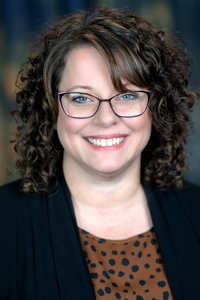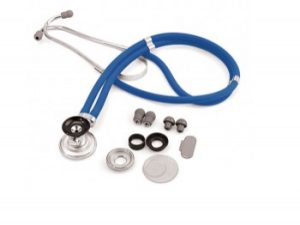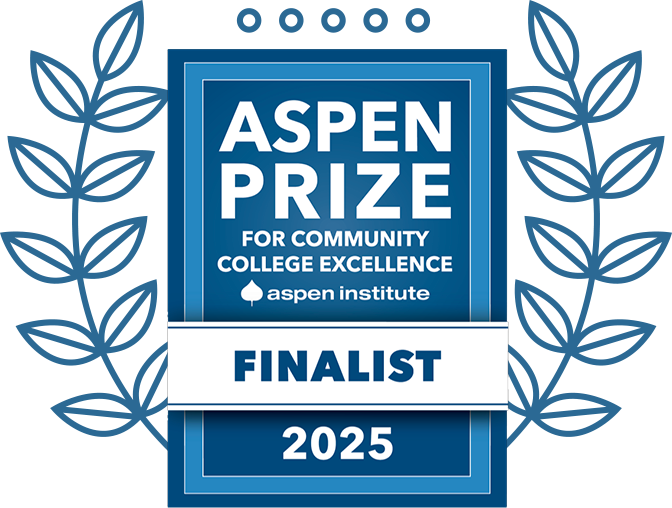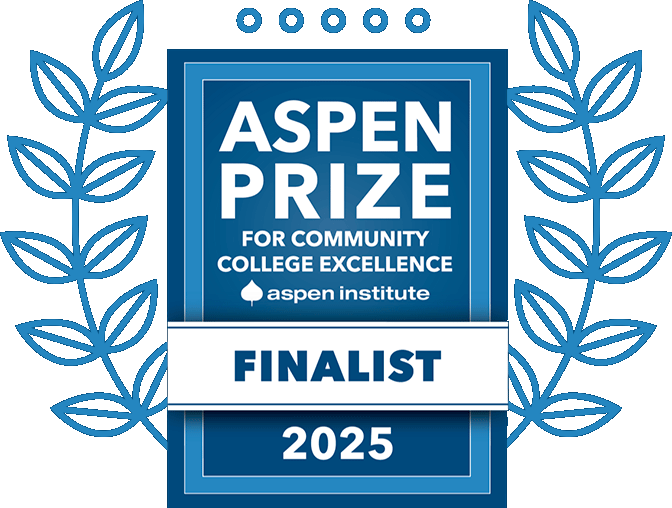Keys to Success – June 2025
Welcome to the Atrium Health Floyd Department of Nursing!
Congratulations! You have been accepted into nursing school. That is quite an accomplishment. Now the work of learning to ‘think like a registered professional nurse’ has begun. During the first semester, you will notice that nurses use scientific processes and critical thinking to safely care for patients and clients. The information on this page will help you navigate the first semester.
Georgia Highlands College (GHC) is fortunate to have excellent nursing instructors who focus on helping you prepare to be a competent, entry-level nurse with knowledge, skills, and attitudes required of professional nursing. You will learn how registered professional nurses (RN) use sound judgment and evidence-based practice to deliver safe, effective care. You will also learn how to partner with people from diverse backgrounds to support their dignity, integrity, personal growth, and desired health outcomes.
Again, congratulations and welcome to the GHC nursing program!

Dr. Shea Walker
Interim Director of Nursing
James D. Maddox Heritage Hall
Office: HH 112
Email: swalker@highlands.edu
Phone: 706-204-2231
GHC Nursing Program
The mission and philosophy of the nursing program is based on the mission statement, mission goals, philosophy, and shared values of the college. Faculty designed the curriculum to support these ideals. In addition, Core Values were identified which we call ‘ACES’ to support achievement of program outcomes.
You will be guided through a well-designed curriculum that prepares you to become a competent entry-level nurse with professional behaviors, interpersonal communication and health assessment skills, clinical decision-making and teaching capabilities, and collaboration skills for managing client care in a technologically-enhanced environment.
Registration
For the first semester of the program, you will be registered for classes once all your documents have been approved by Mr. Chance Hooper in ACEMAPP. The goal is to have everyone registered before course materials become available in D2L the weekend before the semester starts. It is the responsibility of the student to submit all required documents to ACEMAPP at least two weeks prior to the start of the semester.
Beginning with the second semester of the program, you will register yourself after your end-of-semester grades are released and available in your DegreeWorks account AND only if any expired ACEMAPP documents have been updated and approved by Chance Hooper.
If your grades are available in DegreeWorks and all of your documents are up to date in ACEMAPP and you have trouble registering, please email Chance Hooper at chooper@highlands.edu to be registered.
Credentialing
Immunizations and titers (blood tests that prove immunity) are required for clinical attendance. A background check/drug screen and health physical are also required but can’t be completed until entrance into the program. The Hepatitis B vaccine series should be started as early as possible to have time to provide a positive titer. Examples of the appropriate credentialing documents are available on the Clinical Credentialing website.
| Requirement | Accepted Verification | |||
|---|---|---|---|---|
| Varicella |
|
|||
| Measles/Mumps/Rubella |
|
|||
| Tetanus/Diptheria |
|
|||
| TB |
|
|||
| Influenza |
|
|||
| Hepatitis B |
|
Tips for Success
As you begin the nursing school journey, you are probably excited to get started and a little anxious about expectations. The two videos linked below offer solid advice to support your success and cover topics such as:
- Myths and realities regarding nursing school
- How to optimize classroom and skill building sessions
- How to determine your best learning style
- The importance of sleep, balanced nutrition, exercise, and other self-care methods
- How to manage the increased reading and digital technology required of professional nurses.
Nurse Awesome-What I Wish Someone Told Me About the First Month of School
Nurse Awesome-1st Semester Habits That Will Help You Be Awesome!
Nursing School Exams
You may have heard that tests in nursing school are quite different from other college classes. It’s true. Faculty strive to prepare you for the NCLEX-RN exam which is required for licensure as a registered professional nurse (RN). The video linked below provides some tips for success.
Additionally, student success can be fostered by improved test-taking skills provided in your learning resource bundle. Faculty encourage you to study the test-taking tips manual as early as possible in the first semester.
The GHC nursing program uses computer testing. You will test in the classroom on your own laptop (preferred) or in one of the computer labs. Faculty write four or five questions per content hour plus one question per content hour for the cumulative final exam. The GHC nursing program test blueprint shows how the program prepares you for the NCLEX-RN exam. NCLEX-RN style questions are categorized by level of difficulty, client need, and integrated processes.
Levels of Difficulty
- Comprehension – Knowledge of facts and ideas by organizing, comparing, and describing main ideas. Key words include: Compare, contrast, demonstrate, interpret, explain, extend, illustrate, infer, outline, relate, rephrase, translate, summarize, show, classify
- Application – Solve problems in new situations by applying knowledge, facts, techniques and rules in a variety of ways and settings. Key words include apply, build, choose, construct, develop, interview, make use of, organize, experiment with, plan, select, solve, utilize, model, identify
- Analysis – Examine and identify causes, make inferences, and find evidence to support generalizations and nursing actions. Key words include analyze, categorize, classify, compare, contrast, discover, divide, examine, inspect, simplify, survey, test for, distinguish, list, inference, assumption, conclusion
Client Needs
- Safe and Effective Care Environment
- Management of Care
- Safety and Infection Control
- Health Promotion and Maintenance
- Psychological Integrity
- Physiological Integrity
- Basic Care and Comfort
- Pharmacological and Parenteral Therapies
- Reduction of Risk Potential
- Physiological Adaptation
Integrated Processes
- Nursing Process: A scientific, clinical reasoning approach to client care that includes assessment, analysis, planning, implementation and evaluation
- Caring: Partnership between the nurse and client in an atmosphere of mutual respect and trust. The nurse provides encouragement, hope, support and compassion to help the person achieve desired health outcomes.
- Communication and Documentation: Verbal and nonverbal interactions between the nurse, client, family/loved ones, and other members of the health care team. Events and activities associated with client care are recorded in written and/or electronic records that demonstrate adherence to the standards of practice and accountability in the provision of care.
- Teaching/Learning: Facilitation of the knowledge, skills and attitudes that a client needs to promote a change in behavior while striving toward improved health outcomes.
Learning to ‘Think Like a Nurse’
Testing in this manner prepares you for the real world of nursing while in a safe environment. When studying, ask yourself these questions:
- Is the question asking me to notice something, interpret assessment data, respond to a client need, or reflect on whether nursing care was effective?
- Is the question describing a nurse during noticing, interpreting, responding to or reflecting on nursing care?
- Is the nurse addressing the psychosocial or physical needs of a client?
- Is there a safety issue that must be prioritized?
- Instead of just memorizing content, think about and discuss in study groups what you would do to partner with/teach the client, manage care of the client, or keep the client safe.
- For more information on NCLEX-RN style testing, go to the National Council of State Boards of Nursing (NCSBN).
Uniforms
The program includes clinical experiences throughout each semester. A variety of clinical settings are utilized: Long term care/assisted living, hospital, community settings, campus lab and simulation lab. As a representative of this nursing program, you will wear the GHC nursing uniform while on and off campus.
The uniform policy is stated in the ASN Student Handbook 2024-2025 which is located on the GHC nursing website. Familiarize yourself with the policy and adhere to it closely.
Who answers questions and addresses concerns?
Before classes begin, you may contact Chance Hooper with questions regarding program entry/registration/immunizations/credentialing. After classes start, you will connect with faculty and mentors.
You will be assigned a faculty member as your mentor who will be your go-to person for most things related to the nursing program. If you have a question related to the overall course, schedule, or clinical experience, ask the Course Lead and/or the Clinical Liaison respectively. Your assigned Mentor is the go-to person for just about everything else.
Faculty teach concepts based on areas of interest and expertise. So if you have a question about a specific class, ask the instructor who taught the material since courses are team taught. It is not that other faculty members can’t answer your question, but it is best to go to the source – in this case, the instructor who taught the material.
If the persons above are unable to address or resolve the concern, then the next person to speak with is the Assistant Director of Nursing. If the Assistant Director of Nursing cannot satisfactorily address the problem, the Director of Nursing and then the Dean of Health Sciences would address your concern. All of these persons have offices at Heritage Hall. Again, most questions can be answered by the Mentor, Course Lead, and Clinical Liaison.
Should something require assistance from further up the chain of command, next steps are based on whether the concern is related to academic integrity or student code of conduct. Both academic integrity and student code of conduct issues are addressed by the Provost. Refer to the GHC Student Handbook. The most commonly asked questions students have about the program can be answered by visiting the Nursing FAQ.
Resources
The GHC nursing program utilizes one set of learning materials throughout the program. This bundled package from Elsevier is purchased through the GHC book store and saves students money since most required materials are purchased together. The Elsevier package includes assignment modules (teaching content, case studies, documentation exercises), adaptive quizzing assignments, physical and electronic texts, videos, checklists, practice quizzes, benchmark exams, and several other learning resources. You will also purchase assessment and medical supplies, a uniform, and the APA manual*.
Summary of required purchases:
- GHC nursing student uniform, shoes, and patch
- ACEMAPP
- Elsevier bundle
- *American Psychological Association. (2020). Publication Manual of the American Psychological Association.
- Assessment Kit - carrying case, bandage scissors, pen light, blood pressure cuff
- Stethoscope – needs to include both adult and pediatric diaphragms and bells
- Medication Kit – 30ml vial NaCl (2 each), alcohol preps (10 each), TB syringes (2 each), 3ml syringe 25×1 (2 each), U100 Insulin syringes (2 each), 1 large re-sealable plastic bag
- Note: You may see an IV kit in the bookstore. The IV kit will not be needed until spring semester. You can wait to purchase it then. If you already purchased an IV kit, hold on to it.

(Highly recommended for skills development: Sprague-Rappaport stethoscope, any color)
Thoughts for the future
An associate of science degree in nursing (ASN) will prepare you to provide professional registered nurse (RN) care at the basic level. Then, the baccalaureate of science degree in nursing (BSN) will expand your assessment skills, critical thinking based on scientific evidence, and understanding of the RN role beyond hospital settings. Many hospitals will hire ASN graduates with the expectation that you return to school. Some will require you to return to school within 5 years. As you think about and plan your future, consider the GHC RN-BSN program.
Congratulations! We will see you on campus soon!


